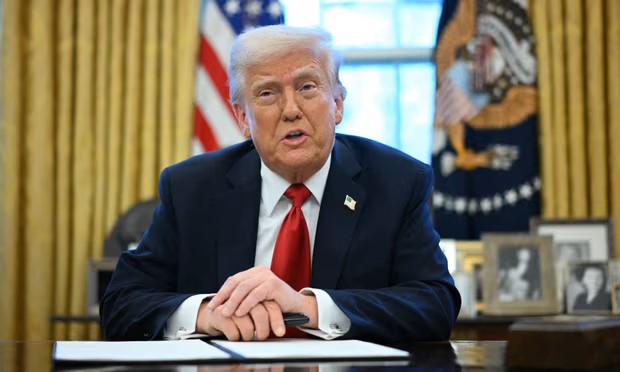By Atoyebi Nike
A major U.S. travel restriction announced by President Donald Trump took effect at midnight Monday, halting entry for citizens from a dozen countries, according to a BBC report.
The policy revives a heavily criticized measure from Trump’s earlier presidency, aiming to tighten border security and reduce immigration from regions flagged as high-risk.
The full ban applies to nationals from Iran, Afghanistan, Haiti, Libya, Myanmar, Chad, Congo-Brazzaville, Equatorial Guinea, Eritrea, Somalia, Sudan, and Yemen—countries cited for either conflict or diplomatic tensions with Washington.
Meanwhile, individuals from Burundi, Cuba, Laos, Sierra Leone, Togo, Turkmenistan, and Venezuela face limited restrictions. These include bans on certain visa categories, such as temporary employment.
Trump linked the renewed crackdown to a recent incident in Colorado involving an Egyptian national, who reportedly overstayed his visa and was involved in an attack on pro-Palestinian demonstrators. Egypt, however, was not among the restricted countries.
“This shows the serious dangers posed by foreign nationals who bypass proper screening,” Trump said. He hinted at expanding the list if global threats continue to evolve.
The administration’s statement cited inadequate border controls, terrorism risks, and high visa overstay rates as reasons for the ban. Trump noted that restrictions could be lifted if affected nations improve identification systems and security cooperation.
Exceptions apply to diplomats and athletes competing in major international events like the 2026 World Cup and the 2028 Olympics in Los Angeles.
Critics quickly denounced the order. Volker Turk, the UN’s top human rights official, raised legal alarms over the breadth of the ban. U.S. Congresswoman Yassamin Ansari, who is of Iranian descent, called the move “xenophobic and cruel.”
Chad responded by halting visa issuance to American travelers, while demonstrations erupted in cities like Los Angeles, where federal immigration operations have intensified.
Afghan refugee applicant Mehria shared her frustration, saying the U.S. had offered hope, only to turn its back. “We built our lives on a promise that’s now broken,” she told AFP.
The move marks another escalation in Trump’s immigration strategy, one that has reignited global concerns over fairness, legality, and international diplomacy.
